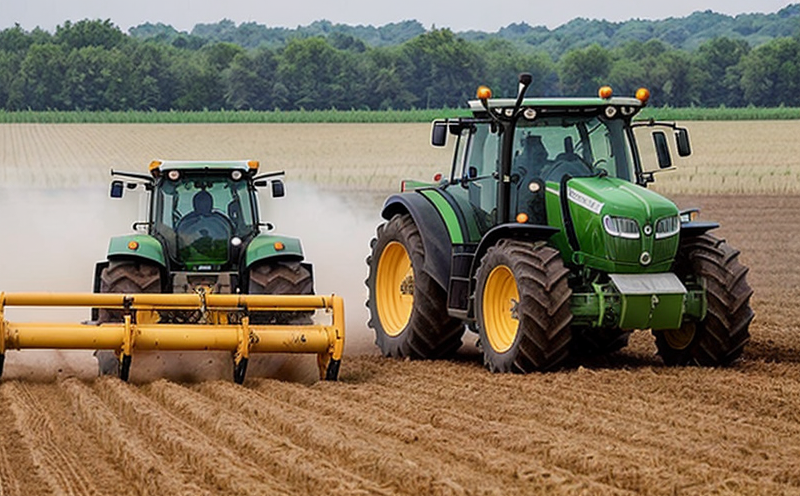Certification Process for Agricultural Machinery
The agricultural industry relies heavily on machinery to optimize crop yields, reduce labor costs, and increase efficiency. However, the complexity of modern farm equipment has led to concerns about safety, quality, and performance. To address these issues, governments and regulatory bodies have established certification processes for agricultural machinery.
Importance of Certification
Certification is essential for ensuring that agricultural machinery meets specific standards and regulations. This process involves a thorough evaluation of the machines design, manufacturing, and testing to ensure compliance with industry requirements. The primary goals of certification are:
To protect consumers from potential risks associated with faulty or non-compliant equipment
To promote fair competition among manufacturers by setting common standards
To support the development of more efficient and effective agricultural practices
Benefits of Certification
The benefits of certification for agricultural machinery are numerous:
Improved safety: Certified machines have undergone rigorous testing to ensure they meet strict safety standards, reducing the risk of accidents and injuries.
Enhanced quality: Certification ensures that equipment meets specific quality requirements, guaranteeing performance and durability.
Increased efficiency: Compliant machinery is designed with user-friendliness in mind, allowing farmers to operate equipment safely and effectively.
Compliance with regulations: Certification helps manufacturers comply with local, national, and international regulations, reducing the risk of fines or penalties.
Certification Process
The certification process typically involves several steps:
1.
Application submission: Manufacturers submit an application for certification to a recognized testing organization (TO) or regulatory body.
2.
Pre-assessment: A preliminary review is conducted to ensure that the manufacturer has met basic requirements and to identify any potential issues.
3.
Testing and evaluation: The machine undergoes rigorous testing, including performance, safety, and emissions evaluations.
4.
Certification audit: A detailed inspection is carried out to verify compliance with regulations and industry standards.
5.
Certificate issuance: Once all requirements have been met, the manufacturer receives a certificate of conformity.
Detailed Explanation: Testing and Evaluation
The testing and evaluation process for agricultural machinery involves several key stages:
Performance testing: Machines are evaluated based on their ability to perform specific tasks efficiently and effectively.
Examples:
- Tractor engine performance
- Combine harvester capacity
- Sprayer application rate
Safety testing: Equipment is assessed for potential risks, including operator safety and environmental hazards.
Examples:
- Brake system evaluation
- Operator protection features (e.g., rollover protection structures)
- Emissions compliance
Emissions testing: Machines are evaluated for their impact on the environment, focusing on emissions levels and fuel efficiency.
Examples:
- Engine emissions control systems
- Fuel consumption rates
- Noise pollution mitigation
Detailed Explanation: Certification Audit
The certification audit involves a detailed inspection of the manufacturing facility to ensure compliance with industry standards. Key aspects include:
Manufacturing process evaluation: The manufacturers production procedures are assessed for accuracy and efficiency.
Quality control measures: The effectiveness of quality control systems, including documentation and record-keeping, is evaluated.
Compliance with regulations: The facilitys adherence to relevant laws and regulations is verified through a review of documentation and evidence.
QA Section
What are the primary types of certification for agricultural machinery?
There are several recognized certifications, including:
ISO 9001 (Quality Management System)
EN 13200 (Agricultural Tractors and Machinery)
ASABE S312.4 (Self-Propelled Mowers)
How often should equipment be inspected or certified?
Regular inspections and certification audits can vary depending on factors such as manufacturer, model, and jurisdiction. Typical intervals include:
Annual or biennial certification for most agricultural machinery
Five-year or ten-year recertification cycles for more complex or high-risk equipment
What are the consequences of non-compliance with regulations?
Manufacturers who fail to meet industry standards may face penalties, fines, or even product recalls. Regulatory bodies can also impose stricter compliance requirements.
How do I find a recognized testing organization (TO) or certification body?
Search for government-approved organizations, industry associations, or third-party certifiers specializing in agricultural machinery certifications.
Can certification be transferable between manufacturers or countries?
In some cases, yes; however, its essential to verify that the new manufacturer meets the same standards and regulations as the original. Consult with regulatory bodies or industry experts for guidance.
What is the average cost of certification?
Costs vary depending on factors such as equipment type, jurisdiction, and testing requirements. Typical fees range from a few hundred dollars to tens of thousands of dollars.
Can I use certified machinery without specific documentation?
No; manufacturers must provide detailed documentation, including test reports, certification certificates, and instruction manuals, for each unit.
How do I ensure that my equipment is compliant with regulations in different countries or regions?
Consult local authorities, industry associations, or regulatory bodies to determine the necessary certifications and compliance measures. Manufacturers may also need to adapt designs or features based on regional requirements.
Certification plays a vital role in ensuring the quality, safety, and performance of agricultural machinery. Compliance with industry standards and regulations not only benefits manufacturers but also supports farmers and consumers by providing assurance of equipment reliability and efficiency.

































